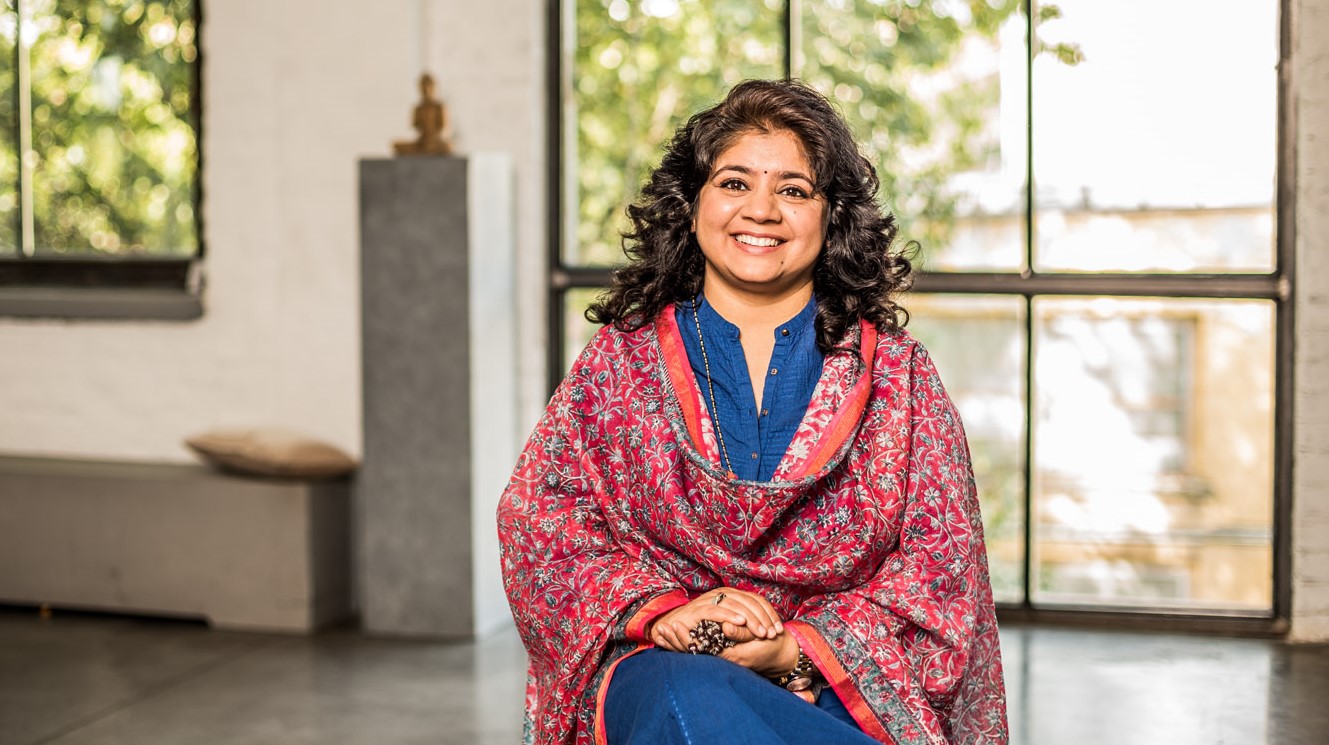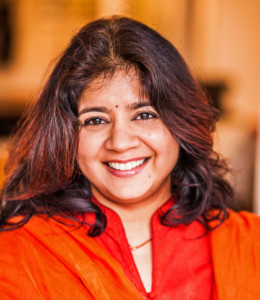August 21- 24, 2025, 10 am- 6 pm pacific time zone
Live stream, in person, and video replay (limited time) available!
Marma Points create a sacred matrix in the human body revolving around 108 points of lights. Give a new life to your practice by seeing it in the context of Ayurveda and Tantra. This 25 Hour training spread over 4 days, will infuse your practice with life, healing and empowerment. CEU’s from YA, IAYT, NAMA.
The study of these points, regions, and locations is essential for an aspiring Yogi, Yoga Therapist, or Yoga practitioner to understand the application of asana, Pranayama, and mantra for balancing doshas, to maintain health, as well as to lead a safe and accessible Yoga class in a group or in private settings.
Understand how prana (life force), tejas (internal fire), and ojas (deep vitality) can be cultivated to regulate and support agni (digestive fire) for optimal health through the knowledge and application of 108 marmani.
12 practice sessions over 4 days, detailed handouts, several Q & A opportunities, and video replay (limited time) allow the registered participant opportunity for qualitative assimilation of teachings.
August 21, Day 1: Introduction to Marmas: Definition, History, and science + Self Care Marma Practices
On the first day of the workshop, we decode Marma points: their meaning, history, and where we find references to them in shastra (Vedic texts). We will identify the broader categories of marmani and will understand how these vital points fit into practice. Other topics include:
- Why Study Marma in Yoga and Ayurveda
- Textural References of Marma Points in Ayurvedic Texts
- Three Main Marma Zones
- Types of Marma as per impact, location, and essence
- Marma Self- Care in Morning Routine: Marma Abhyanga
- Marma Self- Care in Afternoon: Marma Stick massage of hands and feet
- Marma Self-Care in Evening Routine: Head Massage (Oil application on 10 marma points in head region)
August 22, Day 2: Marma Points in Shat Kriyas and Asana
On Day two, we explore the meanings and types of cleansing practices known as Shat Kriyas as well as application of Marma in asana practice.
We will understand the relationship between Shat Kriyas, Asanas, Natural Urges, and Five Prana Vayus
- Main Marma points in 3 Main Shat Kriyas: Kapalbhati, Agnisara, Nadi Shodhana
- Marma in Seated Pose: Nauka Asana, Gomukha Asana
- Marma in Supine Pose: Pawanmukta Asana, Shavasana
- Marma in Prone Pose: Bhujanga Asana
- Marma Points in Standing Pose: Tada Asana
- Marma Points in Inversion: Viparita Karani
August 23, Day 3: Marma Points in Pranayama and Mantra
On day three, we will focus on the subtle body. We explore what the subtle body is as it pertains to Yoga, Ayurveda, and Tantra, the Role of Marma Points in Subtle Body Yoga, and how the subtle body relates to Samkhya Darshan. We clear any confusion with Q&A each day and let the learning sink in through practices and journaling.
Topics for the day include: we look at the application of knowledge of marma in Pranayama and Mantra. We will explore what is the Yantra of a Marma Point, Mantra Purusha Practice with Marma Points as well as practices and discussion including:
- Marma Points in Anuloma Viloma, Shitali, Bhramari Pranayama
- Yantra and Mantra of the Marma Points
- Mantra Purusha and Marma Points.
- BONUS PRACTICE: Marma Healing with Sound
August 24, Day 4: Marma Points in Shavasana and Meditation
Marma points have an important role in relaxation and mediation. Our final day will explore marma points in relaxation, including 61 Marma Point Relaxation, Marma Points in Shavasana, Marma Points in Meditation and Mudras, as well as final Q&A and wrap-up of our time together. As always, practices will help us internalize our learning and truly make it our own. Final topics will also include:
- 61 Marma Points in Shavasana
- Marma Points in Meditation posture
- Body as Yantra Meditation practice
- Marma Points in Meditation Hand Mudras
- Summarization of the Training
- BONUS: Tri-Dosha Balance using herbal paste on marma points
Course Objectives and Takeaways:
- To study the meaning of Marma Points
- To understand the history and textual Reference of Marma Points
- The purpose of studying Marma in Yoga and Ayurveda
- To learn about the types of Marma as per impact, location, and essence
- How to practice Marma Self-Care in Morning and Evening Routine
- Learn about main Marma points in three main shat kriyas in Yoga
- Learn the practice of Marma Self Care: Oil application on 10 marma points in head region
- Learn and practice Marma Points in important Asanas
- Five Prana centering with marma meditation
- Learn about the role of Marma Points in Subtle Body Yoga
- Identify three Marma Regions and six Marma Zones
- Learn about the Yantra of a Marma Point
- How to invoke Mantra Purusha with Marma Points
- Learn to practice 3 main Pranayama with Marma Points
- Learn about the role of Marma Points in Shavasana
- Meditation Posture and Marma Points
- Practice of Tri-Dosha Balance using herbal paste on marma points
- Cautions for self-practice and in guiding others
- How to choose a practice that is right for you
- To empower the Yoga student, Yoga Teacher, and Yoga Therapist with Marma wisdom, to do/lead the practice with confidence, clarity, and awareness.
- Walk away with tangible, doable, supportive Yoga practices of asana, pranayama, mantra, kriyas, asanas, relaxation, and meditation to connect with marma points
- 25-Hour training certificate from Yogsadhna/Indu Arora and Soul of Yoga upon successful completion
- In-depth knowledge and experience on Marma points
Required Books:
- Yoga: Ancient Heritage, Tomorrow’s Vision by Indu Arora
- SOMA 100 Heritage Recipes for Self-Care by Indu Arora
- Ayurveda and Marma Therapy: David Frawley and Avinash Lele
Required Tools:
- Marma Stick
- Yogis Glow Powder
- Cold Pressed Sesame Oil/ Ghee (clarified butter), those sensitive to ghee/sesame oil may bring almond oil
- Rose Water (without essential oil/alcohol)
Recommended Books:
- Mudra The Sacred Secret by Indu Arora
Recommended Tools
- Dosha Wrapsand Malas by Indu Arora
Schedule: August 21- 24, 2025, 10 am- 6 pm pacific time zone
Lunch Hour: 1 pm – 2:30 pm (90 minutes) + two 5-7 minute breaks per day.
Tuition: Included in Yoga therapy Training, Elective in 300 Hour Advanced Training,
A la carte: $775
Indu Arora is a Yoga and Ayurveda teacher, mentor, and author, based out of the USA. She considers herself a student for a lifetime. Indu has been sharing about Yoga philosophy, Yoga Therapy, and Ayurveda for the last two decades. Her unique gift is making Yoga and Ayurveda a practice, which is equally useful for a beginner as for a sincere seeker who has made Yoga a lifelong journey. She is inspired by and taught under Kriya Yoga, Himalayan Yoga, Kashmir Shiavism, and Sivananda Yoga lineages. She has studied in a traditional Guru-shishya parampara setting.
Her teaching style is rooted in empowering and inspiring students to awaken the inner Guru. Her core philosophy is ‘Yoga is a Work-in and not a Work-out’.
She is the author of Mudra: The Sacred Secret (2015), Yoga: Ancient Heritage, Tomorrow’s Vision (2005, 2019), and SOMA: 100 Heritage Recipes for Self-Care (e-book, 2020; updated hard copy, 2022).



